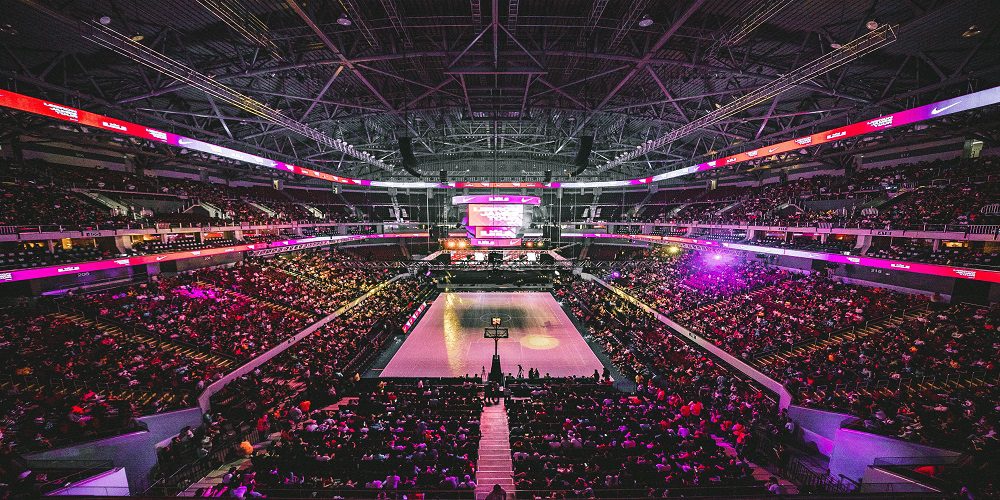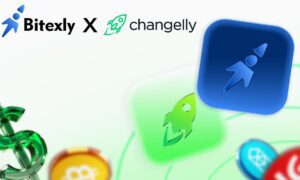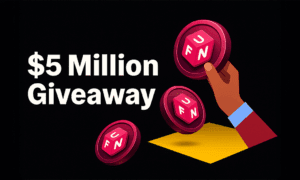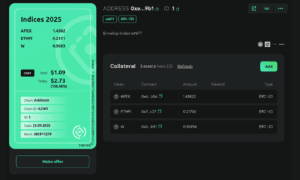Welcome to the future of events, where digital collectibles meet live experiences! In this blog post, we delve into the exciting world of Non-Fungible Tokens (NFTs) and how they are revolutionizing the way we enhance events. Imagine attending a concert or a sports game and not only enjoying the immersive atmosphere but also taking home unique digital artworks or exclusive virtual items that can never be replicated. From enhancing fan engagement to creating unforgettable moments, NFT technology is transforming events like never before.
Introduction
In recent years, there has been a significant rise in the popularity of non-fungible tokens (NFTs) in the digital world. These unique digital assets have been making headlines as they continue to gain traction among various industries, from art and music to sports and gaming. In this section, we will delve deeper into what exactly NFTs are and why they have become so popular.
What are NFTs?
NFTs are essentially one-of-a-kind digital assets that represent ownership of a specific item or asset on the blockchain. Each NFT is unique and cannot be duplicated or replicated like other digital assets such as images or videos. This makes them valuable, as they can prove ownership and scarcity in a digital world where everything can be easily copied.
NFTs use blockchain technology, which is a decentralized system for recording transactions that provides an unalterable record of ownership. This means that once an NFT is created, it becomes part of the blockchain forever, ensuring authenticity and traceability.
How NFTs can be integrated into live events
From concerts to conferences to festivals, NFTs have the potential to enhance live experiences in a multitude of ways.
So how exactly can NFTs be integrated into live events? Let’s explore some of the possibilities.
1. Ticketing:
One of the most obvious ways that NFTs can be integrated into live events is through ticketing. Instead of traditional paper tickets or e-tickets, event organizers can issue NFT-based tickets that are stored on a blockchain network. This not only adds an element of exclusivity and collectibility to event tickets but also eliminates issues such as counterfeiting and scalping.
Moreover, NFT-based tickets can also include additional perks for holders, such as backstage access, meet-and-greets with performers or speakers, and exclusive merchandise discounts, all of which can be redeemed through a unique code embedded in the token.
2. Collectibles:
Live events often come with merchandising opportunities for fans to take home physical souvenirs like t-shirts, posters, and keychains. With NFT technology, these physical items can also be turned into digital collectibles that hold real value.
For example, at a music festival, attendees could purchase limited edition NFTs featuring artwork from their favorite performers or signed by the artists themselves. These NFTs could also include special bonuses like early access to upcoming releases or VIP passes for future events.
3. Virtual Experiences:
With the rise of virtual events in the past year, NFT technology opens up a whole new realm of possibilities for creating unique and immersive experiences for attendees.
For instance, a conference could issue NFTs that grant holders access to exclusive virtual panels with industry experts, live Q&A sessions with speakers, or even private networking events. Similarly, a music festival could offer NFT holders access to virtual backstage tours or interactive meet-and-greets with performers.
4. Crowdfunding:
NFTs can also be used as a means of crowdfunding for live events. Organizers can create limited edition NFTs that represent ownership in the event itself, similar to how stocks represent ownership in a company. This not only allows fans and supporters to have a stake in the event’s success but also provides them with unique perks and rewards based on their level of investment.
5. Loyalty Programs:
Finally, NFTs can be integrated into live events as part of loyalty programs. Attendees who have attended multiple events by the same organizer or have purchased merchandise from previous events can be rewarded with special NFTs that give them access to exclusive perks at future events. This not only incentivizes fan loyalty but also creates a community of dedicated supporters.
Case studies and examples of successful event experiences enhanced by NFT technology
Case studies and real-life examples are always a great way to understand the impact of a new technology. In this section, we will explore some successful event experiences that have been enhanced by integrating NFT technology.
1. Kings of Leon’s “NFT Yourself” Concert:
In March 2021, the American rock band Kings of Leon made history by becoming the first band to release an album as an NFT. The album, titled “When You See Yourself,” was sold as three types of non-fungible tokens: one with an exclusive digital album, one with live show perks like front-row seats for life, and one for limited-edition vinyl copies of the album. This innovative approach not only generated over $2 million in sales but also gave fans a unique and memorable concert experience with VIP access and personalized merchandise.
2. Super Bowl LV Ticket Stubs:
The Super Bowl is known for its extravagant halftime performances, star-studded commercials, and exciting football games. But in 2021, it added another element to its list: NFT ticket stubs. For Super Bowl LV, held in Tampa Bay, Florida, every fan who attended the game received a physical ticket stub along with an NFT version that could be redeemed for exclusive virtual content like behind-the-scenes footage and player highlights.
A step-by-step guide on how event organizers can incorporate NFTs into their planning process
As the world becomes increasingly digitalized, event organizers are constantly looking for innovative ways to enhance live experiences and engage attendees. One emerging technology that has gained significant attention in recent years is non-fungible tokens (NFTs). These digital collectibles have created a buzz in the world of art, music, and sports, but they also have great potential for revolutionizing the events industry.
If you’re an event organizer looking to incorporate NFTs into your planning process, here is a step-by-step guide to help you get started:
Step 1: Understand What NFTs Are
Before diving into incorporating NFTs into your event planning process, it’s important to understand what they are and how they work. In simple terms, an NFT is a unique digital asset that is verified on a blockchain network. This means that each NFT has its own distinct digital identity and cannot be replicated or duplicated. They can represent anything from artwork to music files, videos, or even virtual real estate.
Step 2: Identify potential use cases for your event.
The next step is to identify potential use cases for NFTs at your event. Some common use cases include creating limited-edition digital merchandise or tickets, offering exclusive access or experiences through NFT ownership, or using them as proof of attendance.
For example, you could create limited-edition digital tickets in the form of an NFT that can be bought and sold on a secondary market. This not only adds value to the ticket but also creates a sense of exclusivity for attendees.
Step 3: Partner with NFT Platforms or Artists
To incorporate NFTs into your event, you’ll need to partner with NFT platforms or artists who can help create and distribute them. There are several platforms available that allow you to mint NFTs and sell them on their marketplace.
You could also collaborate with artists or creators to design unique digital assets for your event. This could include virtual artwork, music, or other digital collectibles that can be sold as NFTs.
Step 4: Promote Your NFT Offering
Once you have your NFTs ready, it’s time to promote them and generate buzz around your offering. Use social media and other marketing channels to showcase the unique features of your NFTs and how they add value to the overall event experience.
You could also offer incentives such as early access or discounts for those who purchase your NFTs before the event. This will help drive sales and attract attention from potential attendees.
Step 5: Create an Experience Around Your NFTs
Incorporating NFTs into your event is not just about creating a digital collectible, but also about creating an experience around it. Consider ways to engage attendees with your NFTs, such as hosting live auctions or offering exclusive experiences for NFT holders.
You could also consider creating a virtual gallery or marketplace where attendees can interact with and trade their NFTs. This will add a layer of excitement and engagement to the event.
Step 6: Ensure smooth execution
As with any new technology, there may be some technical challenges when incorporating NFTs into your event. It’s important to test and troubleshoot any potential issues before the event to ensure smooth execution.
Make sure that your NFT platform is user-friendly and easily accessible for attendees. You may also want to offer support or resources for those who are unfamiliar with NFTs.
Step 7: Follow Up After the Event
After the event, it’s important to follow up with attendees who purchased your NFTs. Consider sending out surveys or collecting feedback to understand how they perceive the NFT offering and if there are any improvements that can be made for future events.
You could also continue engaging with them through the secondary market by offering new additions or updates to your NFT collection.
Incorporating NFTs into your event planning process can add a unique and exciting element to the overall experience. By following these steps, you can successfully integrate NFTs into your event and create an engaging and memorable experience for attendees.
Conclusion
NFTs have the potential to revolutionize the live event industry by adding a new layer of value and engagement for attendees. From ticketing to collectibles to virtual experiences and more, the possibilities for integrating NFTs into live events are endless.



































